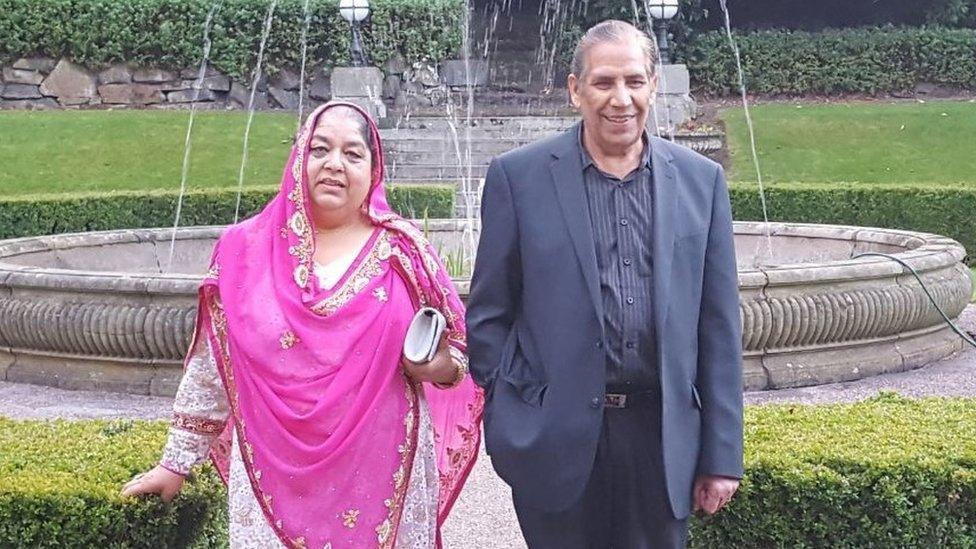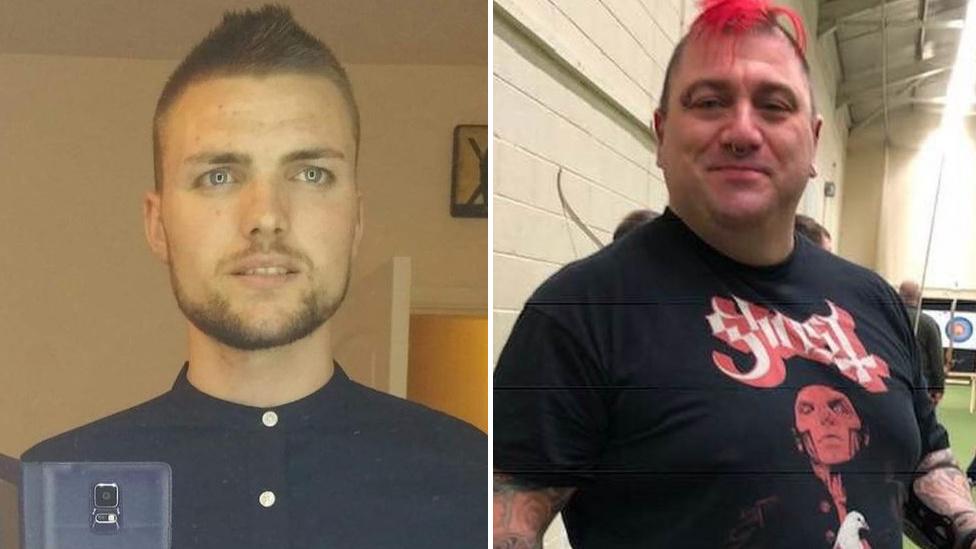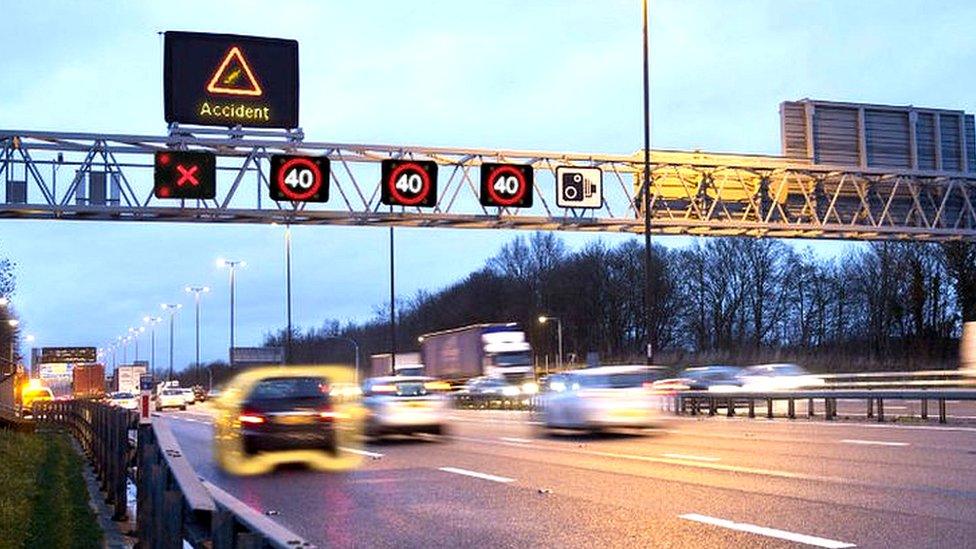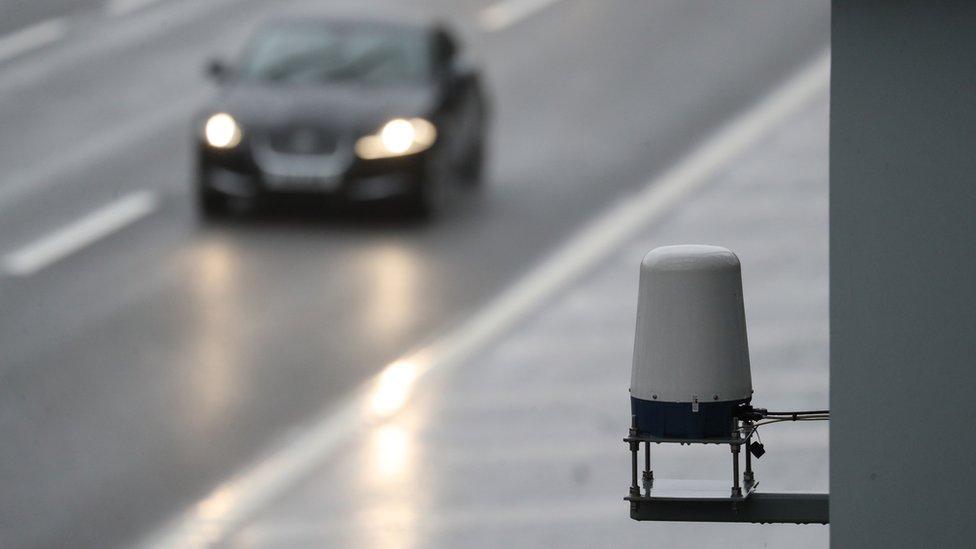Smart motorways: Highways boss to give inquest evidence
- Published

Nargis Begum died after the car she was travelling in with her husband Mohammed Bashir broke down on a smart motorway
The boss of the body which runs England's motorways will give evidence at the inquest into the death of a woman killed on a "smart" section of road.
Nargis Begum, 62, died in 2018 after her stranded car was hit by another vehicle on part of the M1 in South Yorkshire with no hard shoulder.
National Highways said chief executive Nick Harris would answer questions.
The inquest is due to begin in September in Doncaster.
Mrs Begum, a mother-of-five and grandmother-of-nine, was in a Nissan Qashqai driven by her husband which broke down on the M1 near Woodall Services in September 2018.
She left the Nissan and was awaiting help when another vehicle crashed into her car, which then struck her.

What is a smart motorway?
A smart motorway is a stretch of road where technology is used to regulate traffic flow and - hopefully - ease congestion. There are three main types:
Controlled, which have a permanent hard shoulder, but use technology such as variable speed limits to adjust traffic flows
Dynamic, where the hard shoulder can be opened up at peak times and used as an extra lane; when this happens, the speed limit is reduced to 60mph
All-lane running, where the hard shoulder has been permanently removed to provide an extra lane; emergency refuge areas are provided at regular intervals for cars that get into trouble
All three models use overhead gantries to direct drivers. Variable speed limits are introduced to control traffic flow when there is congestion, or if there is a hazard ahead. These limits are controlled by speed cameras.

At a pre-inquest review, National Highway's Prashant Popat QC told Senior Coroner Nicola Mundy the agency was "acutely conscious that it needs to make clear to you how seriously it is taking the inquest".
He said Mr Harris' evidence would help the inquest as he had been director of operations for Highways England, as the body was previously called, at the time of Mrs Begum's death.
The barrister said Mr Harris would answer questions about general matters including safety and information available to drivers.
He was best placed in the agency, he added, to assist the coroner with decisions she might have to make about whether a Prevention of Future Deaths Report, external was required.
Ms Mundy had previously asked South Yorkshire Police to consider if the agency should face corporate manslaughter charges over Mrs Begum's death.
In February, the force confirmed the company would not be charged and would also not be charged in connection with another crash on a different stretch of the M1, in which Jason Mercer, 44, and Alexandru Murgeanu, 22, died in June 2019.

Alexandru Murgeanu (l) and Jason Mercer were also killed in a separate crash on the M1 in South Yorkshire
Sheffield coroner David Urpeth recorded a conclusion of unlawful killing at the inquests into the deaths of Mr Mercer and Mr Murgeanu.
He concluded smart motorways "present an ongoing risk of future deaths".
"I find, as a finding of fact, it is clear a lack of hard shoulder contributed to this tragedy," he said.
The full inquest into Mrs Begum's death is due to begin on 6 September.

Follow BBC Yorkshire on Facebook, external, Twitter, external and Instagram, external. Send your story ideas to yorkslincs.news@bbc.co.uk, external.
Related topics
- Published1 February 2022

- Published22 April 2024

- Published11 February 2021

- Published4 February 2021

- Published18 January 2021
